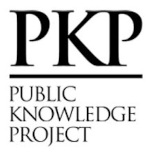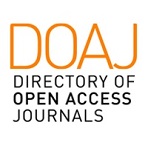The Metamorphosis of Culturen
DOI:
https://doi.org/10.29147/dat.v5i2.210Keywords:
Culture, Semiotics, Teleonomy, EmergenceAbstract
Culture, concept consolidated by Edward Burnett Tylor, who lived between 1832-1917, one of the fathers of social anthropology, as being the “complex whole which includes knowledge, belief, art, morals, law, custom and any other capabilities and habits acquired by man as a member of society”, therefore, as the set of ideas, systematized knowledge, traditions and habits in a particular ethos, has been regularly debated, particularly since the late nineteenth century. Philosophers like Daniel Dennett have speculated on the principles of its transformation. Emanuel Pimenta has been writing and publishing articles and books on the subject since the 1980s, but with a different approach, essentially mathematical. Starting from Charles Sanders Peirce and incorporating neuroaesthetics, he establishes principles of mutation and conceptualization of culture as an alive organism.
Downloads
References
BERGER, René. Cybercarnets. Lausanne: EPFL, 1992.
BRENNER, Joseph E. Logic in Reality. Berlin: Springer, 2008. DOI: https://doi.org/10.1007/978-1-4020-8375-4
CHERBIT, G. (editor). Fractals, Non-Integral Dimensions and Applications. New York: John Wiley, 1991.
DAWKINS, Richard. The Selfish Gene. Oxford University Press, 1976.
DENNETT, Daniel. Brainstorms: Philosophical Essays on Mind and Psychology. Cambri¬dge: The MIT Press, 1981. DOI: https://doi.org/10.7551/mitpress/1664.001.0001
DENNETT, Daniel. Freedom Evolves. Viking Books, 2003.
DENNETT, Daniel. The Mind's I. Bantam Books, 1985. (with Douglas Hofstadter)
EDELMAN, Gerald. Bright, Air, Brilliant Fire, On the Matter of the Mind. New York: Basic Books, 1992.
EDELMAN, Gerald. The Remembered Present. New York: Basic Books, 1989.
EDELMAN, Gerald; TONONI, Giulio. A Universe of Consciousness. New York: Basic Books, 2000.
GAZZANIGA, Michael S. The Cognitive Neurosciences III. Cambridge: MIT Press, 2004.
KIMURA, Motoo. Molecular Evolution, Protein Polymorphism and the Neutral Theory. Berlin: Springer Verlag, 1982.
KIMURA, Motoo; KALLIANPUR, Gopinath et al. Stochastic Methods In: Biology: Proceedings of a Workshop held in Nagoya, Japan July 8–12 1985 (Lecture Notes in Biomathematics). New York: Springer, 1987. DOI: https://doi.org/10.1007/978-3-642-46599-4
KIMURA, Motoo. Théorie Neutraliste de L'Évolution. Paris: Flammarion, 1983.
LUPASCO, Stéphane. L'Énergie et la Matière Vivante. Paris: Julliard, 1962.
LUPASCO, Stéphane. Les Trois Matières. Paris: Julliard, 1960.
MANDELBROT, Benoît. Les Objects Fractals. Paris: Flammarion, 1975.
MATURANA, Humberto R.; VARELA, Francisco J. The Tree of Knowledge. London: Sham¬bhala, 1998.
MONOD, Jacques. Le Hasard et la Nécessité. Paris: Points, 1970.
PEIRCE, Charles Sanders. Antologia Filosófica. Lisboa: Imprensa Nacional Casa da Moeda, 1998.
PEIRCE, Charles Sanders. Chance, Love and Logic: Philosophical Essay. Morris Raphael Cohen, 1923.
PEIRCE, Charles Sanders. Collected Papers of Charles Sanders Peirce, 8 volumes. Charles Hartshorne and Paul Weiss.
PEIRCE, Charles Sanders. Escritos Lógicos. Madrid: Alianza Universidad, 1968.
PEIRCE, Charles Sanders. Peirce on Signs, Writings on Semiotic. The University of North Caroline Press, Chapel Hill, 1991.
PEIRCE, Charles Sanders. Selected Writings. New York: Dover, 1958.
PEIRCE, Charles Sanders. Semiótica e Filosofia, Textos Escolhidos. São Paulo: Cultrix, Editora da Universidade de São Paulo, 1975.
PEIRCE, Charles Sanders. Reasoning and the Logic of Things. Cambridge: Harvard University Press, 1992.
PEIRCE, Charles Sanders. The Essential Peirce, Selected Philosophical Writings, Volume 1 (1867-1893). Indiana University Press, 1991.
PEIRCE, Charles Sanders. The Essential Peirce, Selected Philosophical Writings, Volume 2 (1893-1913). Indiana University Press, 1991.
PEITGEN, Hans Otto; RICHTER P. H. The Beauty of Fractals. Berlin: Springer Verlag, 1986. DOI: https://doi.org/10.1007/978-3-642-61717-1


























